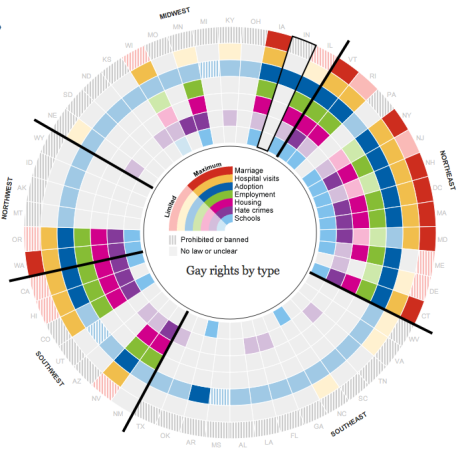
Workplace equality for people of all sexual orientations and gender identities is an issue that has grown in renown in the past decade. As more people rally for the cause, major corporations and small businesses alike are showing their support through programs that protect the rights of their LGBT workers or reimburse individuals in domestic partnerships for the extra taxes they must pay because they are unable to marry. Many businesses have spoken out against workplace discrimination towards non-heterosexual employees, but few businesses have taken up the challenge that OSL Holdings is currently facing.
OSL Holdings is a data technology company founded by Eric Kotch that seeks to acquire data about the purchasing habits of LGBT individuals and straight allies and distribute this data in order to connect businesses and people who support the LGBT community. According to the president of OSL Holdings, Robert Rothenberg, the company is “creating the tools to expend the marketplace in identifying the LGBT community, identify LGBT-owned businesses with major corporations so they can contract with them and do some business.”
OSL Holdings has created a rewards program to incentivize businesses to use the service. This rewards program uses “reward currency” that can be earned and then redeemed for participating goods and services. According to the OSL Holdings website, reward currency functions as a type of “Loyalty Program” that gives credit to loyal customers and businesses, which gives retailers “a package of products and services for better business efficiency, boosting sales and profitability.” These products and services will allow the businesses to market more specifically to the LGBT community, which will thus provide this community with a better marketplace experience and will boost sales for the businesses themselves.
OSL Holdings is not the first company that has sought to strengthen the LGBT community using the marketplace. Community Marketing, Inc. (CMI), a company that according to its slogan has “helped business leaders understand and successfully connect with the lesbian, gay, bisexual and transgender (LGBT) community since 1992,” also seeks to expose the importance of the LGBT community in the marketplace. CMI holds conferences and workshops for employees, executives, and small business owners that focus on how companies can incorporate the LGBT community in their marketing, thus gaining the business of a strong community.
CMI also hosts events around the United States that allow businesses and corporations that all support workplace and marketplace equality for individuals of all sexual orientations and gender identities. The company will be holding its sixth-annual Gay and Lesbian Marketing Conference in New York City during March of 2013. The conference includes sessions that focus on why the LGBT community is important to the economy, how to market products and services to this community, and how to connect with other businesses working towards the same goal.
When large corporations and small businesses connect in order to advocate for the LGBT community, this strong network of support can help individuals to come together and rally for the cause. Companies like OSL Holdings and Community Marketing, Inc. help LGBT individuals and straight allies to unite and support a community that is vital to the American economy. If we support marketplace equality, not only will we strengthen the LGBT community, but with companies like OSL Holdings and CMI uniting the supporters, we will also strengthen the American economy.
Written by Jordan Javelet
Goucher College









